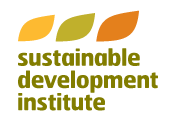
As part of efforts in documenting reasons for low women participation in Community Forest Management Body (CFMBs), the Sustainable Development Institute (SDI) and Foundation for Community Initiatives (FCI) on March 9-13, 2023 paid an assessment visit to Gheegbah#1 Authorized Forest Community in Grand Bassa District#2.
The assessment was to understand why women's representation is low in CFMBs leadership and to identify ways to increase their participation in decision-making.
Chapter 4; Section 4.1 of the amended Community Rights law with respect to forest lands says the Community Assembly shall establish a five-member Community Forest Management Body to manage the day-to-day affairs of the Authorized Forest Community. It also states that the Community Forest Management Body shall include at least one woman.
The discussion involved 92 participants of which all were women. Of this number, 50 were older women; while 42 of them were youth. During the trip, the team held a Focus Group Discussion (FGD) in Gonoe Town, Kangbo Town, and Zangar Town, all in Gheegbah # 1 Authorized Forest Community. The discussion was geared to explore the participation of women in the Community Forest Management Body (CFMBs).
It was moderated by trained Facilitators, Madam Makula Kamara of FCI and Mr. A. Morris Nyain who encouraged the participants to share their thoughts and experiences on the topic.
During the discussion, the participants reported that there are CFMBs in their community, but disclosed that women are not part of these boards. Oretha Towah, the Chairlady, and Ruth Douglas, the CA, were identified as the leaders of the CFMBs. When asked why women are not part of the CFMBs, Oretha Towah explained that women were not part of the forest business from the beginning, and most women in the area were not educated and did not know the issue very well.
Madam Ellen Johnson spoke passionately about how women are not allowed to speak in meetings or how they are undermined. She further stated that she is not sure if this problem can be solved. She said, “We are not respected in gatherings even when NGOs come into the community.”
Speaking of what needs to be put in place for them to feel part of community governance, the participants responded that they need schools, clinics, and other basic services. They also added that Foundation for Community Initiatives (FCI) should provide training for women in the forest business.
Regarding the things, they need from the government, some gave responses like the need for empowerment through loans to women, support for their children to go to school, and good roads. When asked about their knowledge of elections for community governance, only one person claimed to be aware of the elections process of the CFMBs.
The participants commended SDI and FCI, saying the discussion provided valuable insights into the reasons for women's exclusion from Forest governance processes in the community.
Funding for the activity was provided by Nord- ClientEarth under the project titled: “Building legal foundations for sustainable forests and Livelihoods.”
This is a five-year project [2021-2025], funded by NORAD, and is implemented by ClientEarth-a UK based international NGO along with Liberian partners’ organizations.
